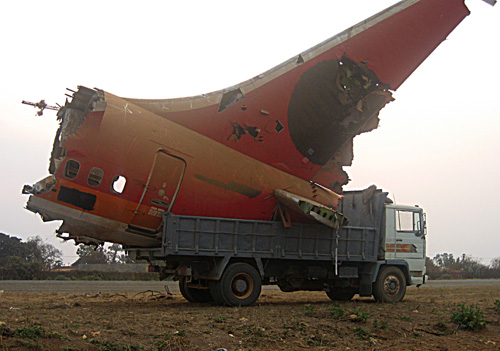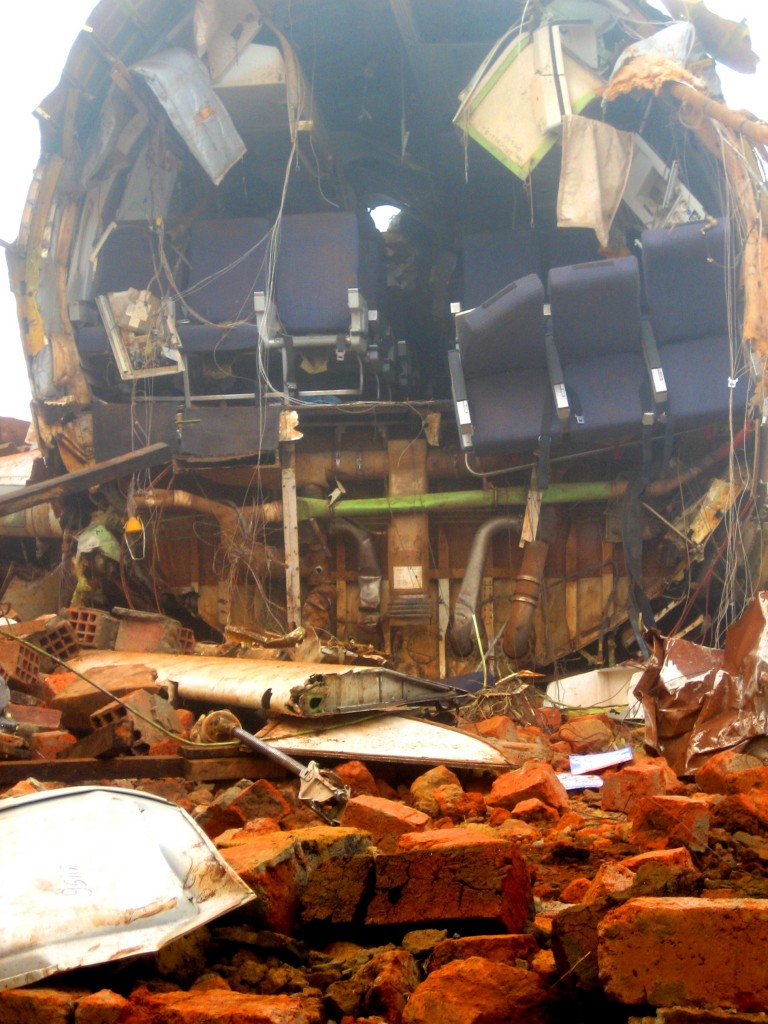
FEATURE | Congo DR: My Crash
D.R. Congo | Nate Miller | August 2009
Republished November 2024
Welcome back! This story was published in our original first issue of Humanitarian Bazaar Magazine (originally called HELO Magazine) in August 2009.
Africa can be bad for your life expectancy. Most dangers are mundane: microscopic parasites, mosquitoes, cars with bad brakes, unequipped hospitals. The more newsworthy events – rebel attacks, lions, plane crashes – are the stuff that people worry about, but rarely happen. But rarely doesn’t mean never.
Last year, in late June, I boarded an Angola Airlines Boeing 737 to travel from Luanda to the northern Angolan town of M’banza Congo, where I was working on a malaria control programme. Just in front of me was an elderly Italian priest in a brown robe. Forty-five minutes later, he was dead. So too was my friend Paciencia, the town’s mayor, whom I’d greeted as I passed his seat and arranged to chat to after we landed.
The problems had started during the descent. The aircraft took a couple of sharp turns, left and then right, before diving towards the runway. My heart began to pound. As I saw the ground rushing towards me through the window, I was pretty certain we were going too fast. I knew it would be a rough landing, but in my time in Angola I had come to regard rough landings as normal. My ears popped just before we hit the ground. I looked up to the roof of the plane in an attempt to take my mind off the approaching earth.
Then we hit. The aeroplane shook violently and people were screaming as the oxygen masks dropped. The impact smashed the landing gear and we skidded out of control. I heard a loud crash as we hit something. I put my head in my hands, with a feeling of waiting for something to hit me. Then I realised the plane had stopped. I sighed in relief and looked up.
The front of the aircraft was gone. The people on the other side of the aisle, which was blocked by wreckage, were unconscious and blood was running down their faces. Others clambered over seats in a scramble for the emergency exit. One guy was standing on a seat, trying to get at his luggage in the overhead bin.
“Forget your bag,” I told him. “Get the hell out!” Then I dashed for the exit, wondering what the chances were of a sudden explosion.
After jumping off the wing I looked around. It was chaos. Passengers were running away from the plane, passing people from town who were running towards it. Lots of screaming and crying. Some people dropped to their knees and praised God; others just stood in a daze. Relatives of missing passengers were running around wailing. A large crowd had formed and moved closer to the plane. A stream of fuel poured out under the wing – I pictured someone dropping a cigarette and an explosion taking out 100 spectators.
I phoned a co-worker to bring our car to help shuttle the injured to the hospital. Then I went round to the front of the aeroplane, which rested next to a half-destroyed house. Then I realised, “Wait, that’s my neighbour’s house!” I hadn’t had any idea where we were. So I looked on the other side of the plane and there was my guard standing on the roof of my own home. I walked around the wreckage and into my house, where I was greeted with hugs and declarations that God was with me.
When we’d veered off the runway, the plane had crashed into my neighbour’s house. Then, on its way to my house, we hit the big tree in my front yard. The tree was ripped out of the ground, but only after slicing the plane in half between first class and economy. The rear smashed into another neighbour’s house. The old man who lived there had had a few beers and was in bed sleeping it off. We came to a stop in his bedroom.
I walked away with no more than a couple of bruises, but at least five people died. The experience gave me a new understanding of my own mortality… and Africa’s impact on it. I ask myself sometimes if the risks are worth the experiences I’m having. I think they are. At least for now. But I still hate the landings.
******

Img: Nate Miller.
